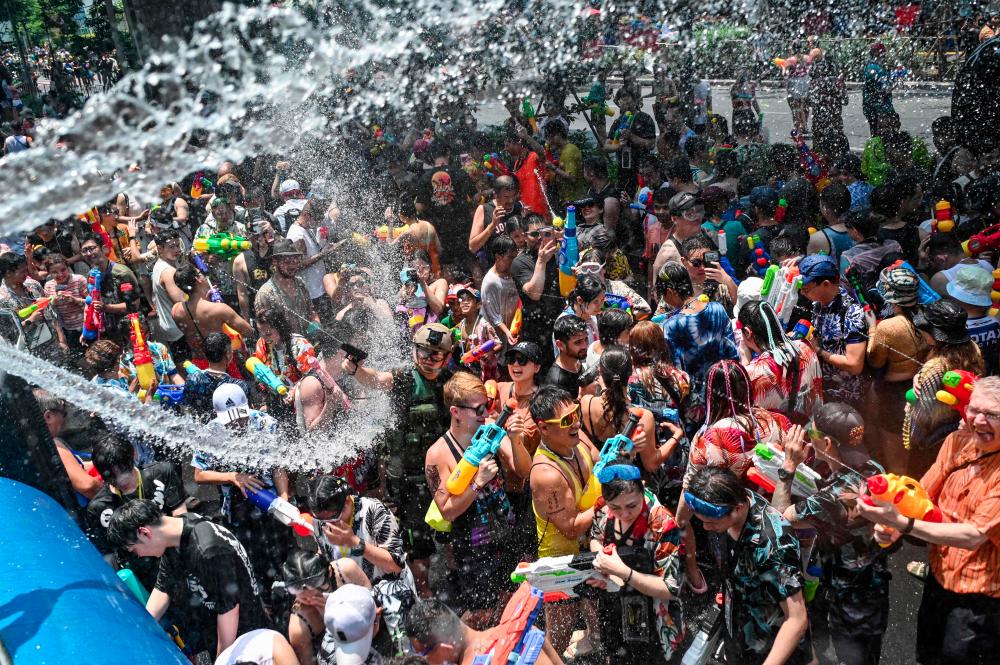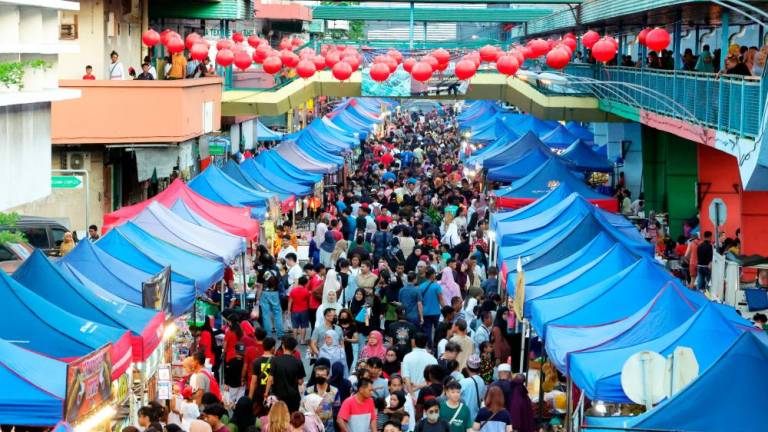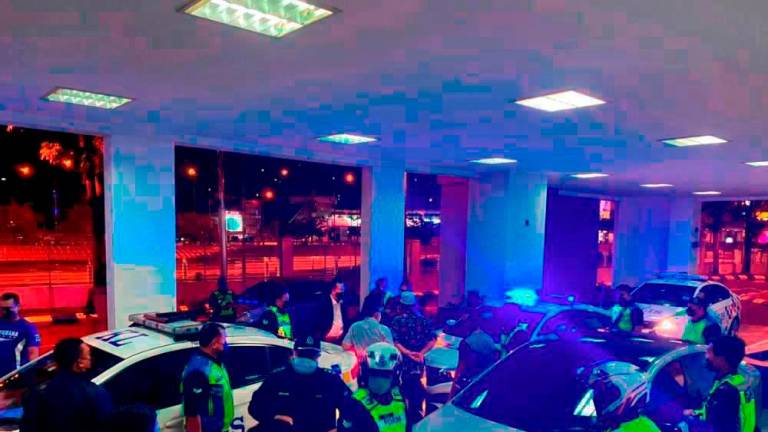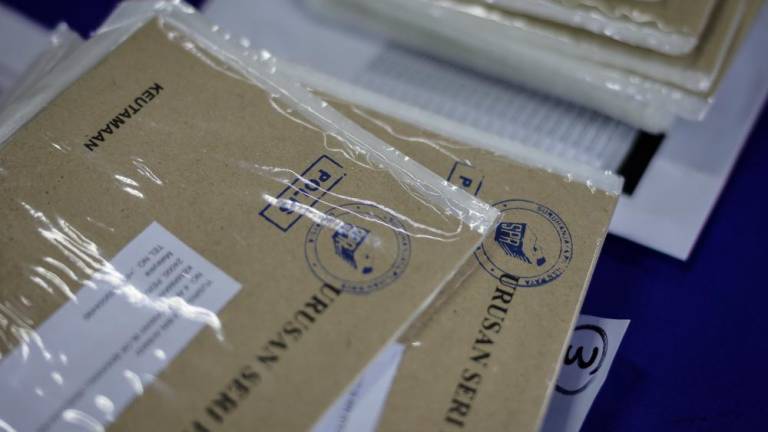BANGKOK: Thousands of revellers, wearing floral shirts and wielding colourful water guns, thronged the street of Silom, Khaosan Road and most of the shopping malls to celebrate the Songkran or Thai New Year.
For the first time this year, Songkran in Thailand has been recognised by UNESCO’s Representative List of the Intangible Cultural Heritage of Humanity.
The Songkran holiday this year is the longest as the Thai Cabinet has approved five days for holiday – from April 12 to 16.
Many shopping malls in Bangkok have prepared not only water tanks for revellers to refill their water, but also water slides, swimming pool and kids’ pool for participants to chill during hot season.
ALSO READ: UNESCO recognises Songkran as intangible cultural heritage of humanity
Bob Blevins, 38, a tourist from Califonia, United States of America who will.be here until Monday said this is the first time in his life that he is involved in street water fight.
“I was planning to attend a wedding in Bali, Indonesia end of this month and I was advised by my friend to come Thailand to join the Songkran before going to Indonesia.
“I never know about Songkran until a friend of mine told me, and see, now I am having fun. I have also learned that this is actually Thai new year and the water is meant to wash away bad luck,“ he told Bernama when met at Khaosan Road here today.
Khaosan Road in Bangkok was buzzing since yesterday as thousands of revellers thronged the popular backpacker district for water fights to celebrate Songkran.
ALSO READ: Thailand allocates RM13.8m to promote Songkran Festival
As a part of traditional Thai culture, it is customary to welcome the new year by splashing water on each other as a cleansing ritual to wash away sins and bad luck, with the belief that this will bring good fortune and blessings for the year ahead.
Dubbed as the world’s biggest water fight, the yearly Songkran draws thousands of tourists from around the world to celebrate the festival.
In addition to water fights, locals also celebrate Songkran by visiting temples to perform a bathing ritual for Buddha statues. During this ritual, scented water is poured over the statues to symbolically wash away bad deeds from the past year.
Besides that, young family members pour water over the hands and feet of their elders to show respect.
The Songkran festival this year saw many taking the opportunity to travel back to their home provinces for the long-weekend holiday to celebrate with their family members.
ALSO READ: Thailand police set up monitoring centre to prevent road accidents










